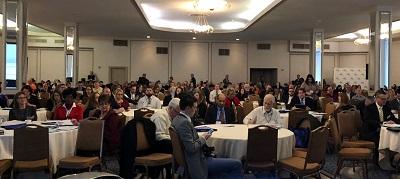By Michael Daniels, Director of Government Affairs, NTCA–The Rural Broadband Association
February 14, 2019
Rural America faces many challenges—from declining populations to deteriorating infrastructure. But among these obstacles, access to quality health care is paramount. Whether because of a shortage of physicians, distance to the nearest health care facility, greater incidence of chronic conditions, or simply the general socioeconomic disparities relative to urban areas, Americans in rural places are at a disadvantage when it comes to getting and staying healthy. Access to broadband therefore is a vital necessity—literally—to ensure remote access to doctors, caregivers and loved ones who often live very far away.
Broadband availability and access to quality health care are inextricably linked. However, that link remains broken in too many places.
Recently, I had the opportunity to speak on a panel entitled “Rebuilding Rural America: Health Care Infrastructure” at the National Rural Health Association’s (NRHA) Rural Health Policy Institute. We discussed these significant hurdles faced by rural Americans through the lens of diverse stakeholders influencing the health care sector. As a national nonprofit with more than 21,000 members, NRHA is in the unique position of representing rural health care providers and providing leadership through advocacy, communications, education and research. The panel’s contribution to the discussion was particularly relevant to this audience.
My remarks on the panel focused on the wide-ranging benefits of connectivity in rural America. NTCA–The Rural Broadband Association’s members fill the gap that so many citizens in rural America face; and, importantly, our members serve their own communities where the health demands really hit home. Just last week, the Foundation for Rural Service (FRS) launched a new grant program that I highlighted for the NRHA audience. FRS is establishing a Virtual Living Room (VLR) grant program to support veterans’ communities that lack easy access to VA hospitals and clinics. This program will create local spaces (in places like libraries, churches and VFW halls) that will provide free access to health services for veterans. Peoples Rural Telephone Cooperative opened the first VLR in Kentucky in 2017, and through this new grant program we hope that many more community leaders will be able to provide that same great benefit to rural constituents across the country.
Broadband availability and access to quality health care are inextricably linked. However, that link remains broken in too many places. Due to the great work of NTCA’s members, these gaps are being filled so that more and more people can gain access to the life-saving health services they so desperately need. NTCA will continue to advocate for better connectivity to promote a high quality of life across all of rural America.


